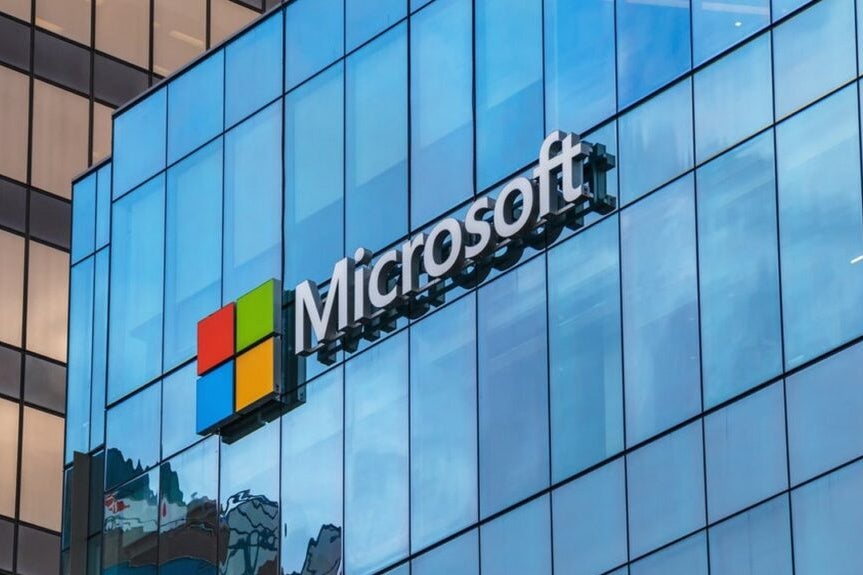Microsoft Considers Natural Gas as a Game-Changer for AI Data Centers
In a significant shift towards sustainable energy solutions, Microsoft is exploring the use of natural gas as a viable energy source for its AI data centers. This bold initiative, contingent upon commercial feasibility, could revolutionize how large-scale data centers consume energy while striving for sustainability. As the demand for artificial intelligence and cloud computing continues to surge, the energy consumption of data centers has become a crucial concern. Microsoft’s investigation into natural gas could provide a more efficient, cleaner alternative to traditional energy sources.
The Growing Demand for AI and Data Centers
As industries rapidly adopt artificial intelligence (AI) technologies, the need for robust data processing capabilities has never been greater. The rise of machine learning, big data analytics, and complex algorithms demands immense computational power, leading to a proliferation of data centers worldwide. However, these facilities consume vast amounts of energy, contributing significantly to global carbon emissions.
Data centers are estimated to account for approximately 1-2% of the world’s total energy consumption. With the global push towards net-zero emissions, technology giants like Microsoft are under immense pressure to find sustainable ways to power their operations. As such, the exploration of natural gas as a potential energy source is both timely and critical.
Why Natural Gas?
Natural gas is often touted as a cleaner alternative to traditional fossil fuels, primarily coal and oil. Here are several reasons why Microsoft is considering natural gas for its AI data centers:
- Lower Carbon Emissions: Natural gas emits about 50% less carbon dioxide than coal when burned for electricity generation. This reduction can lead to significant decreases in the overall carbon footprint of data centers.
- Flexibility: Natural gas can be used for both baseload and peak electricity generation, making it a versatile option for meeting fluctuating energy demands in data centers.
- Cost-Effectiveness: Natural gas prices have been relatively stable compared to other energy sources. This economic factor could make it appealing for large-scale operations such as Microsoft’s data centers.
- Infrastructure Availability: Many regions already have established natural gas infrastructure, which could ease the transition compared to developing entirely new renewable energy systems.
Environmental Considerations
While natural gas presents several advantages, it is essential to consider its environmental impact carefully. The extraction and transportation of natural gas can lead to methane leaks, a potent greenhouse gas. Microsoft’s commitment to sustainability means that any adoption of natural gas would need to be accompanied by rigorous monitoring and mitigation strategies to minimize leaks and emissions.
Additionally, transitioning to natural gas does not mean abandoning renewable energy sources. Instead, it can serve as a bridge toward a more sustainable energy future. Microsoft has already committed to being carbon negative by 2030, and incorporating natural gas into its energy mix could be a strategic step in achieving this goal.
Natural Gas and Technological Innovations
The exploration of natural gas for data centers isn’t just about the fuel itself; it also opens the door for technological innovations. Microsoft is well-known for its investment in cutting-edge technologies. By integrating natural gas systems with AI and IoT technologies, the company could optimize energy consumption and operational efficiency.
Some innovative approaches could include:
- Smart Energy Management Systems: Using AI to predict energy needs and optimize the use of natural gas in real-time, reducing waste and costs.
- Combined Heat and Power (CHP) Systems: These systems can generate electricity and capture heat that would otherwise be wasted, increasing overall efficiency.
- Carbon Capture Technologies: Developing systems that capture and store emissions generated from natural gas usage could further mitigate environmental impacts.
Microsoft’s Broader Sustainability Goals
Microsoft’s exploration of natural gas fits within a broader context of its ambitious sustainability goals. The company has pledged not only to become carbon negative by 2030 but also to remove all the carbon it has emitted since its founding in 1975 by 2050. Achieving these goals requires a multifaceted approach to energy consumption, including a diversified energy portfolio.
The potential use of natural gas could complement Microsoft’s existing renewable energy initiatives, which include investments in solar, wind, and hydropower. By optimizing its energy mix, Microsoft can ensure that it continues to meet the growing demands of AI while adhering to its sustainability commitments.
Challenges and Considerations
While the prospects are promising, several challenges remain as Microsoft considers natural gas as a game-changer for its AI data centers:
- Regulatory Hurdles: The energy landscape is heavily regulated, and any new initiatives involving natural gas will need to navigate complex regulatory frameworks.
- Market Volatility: Natural gas prices can fluctuate significantly based on market conditions, potentially affecting the long-term viability of this energy source.
- Public Perception: As climate awareness grows, public sentiment towards fossil fuels, including natural gas, remains mixed. Microsoft will need to communicate its strategy effectively to stakeholders.
The Future of AI Data Centers
As Microsoft explores natural gas, the future of AI data centers could be characterized by a more sustainable and innovative energy landscape. The integration of natural gas with advanced technologies could lead to increased efficiency and reduced environmental impacts, setting new standards for energy consumption in the tech industry.
Ultimately, Microsoft’s initiative is not just about energy; it’s about shaping the future of technology through sustainability. By considering natural gas as a viable option, the company could pave the way for a new era of environmentally conscious data centers, balancing the demands of AI with the pressing need for sustainable energy solutions.
In conclusion, Microsoft’s exploration of natural gas as a potential energy source for its AI data centers could indeed be a game-changer. It represents a strategic and thoughtful approach to addressing energy consumption in an era where technology and sustainability must go hand in hand. As the company advances this initiative, it will undoubtedly influence the broader tech industry and contribute to a more sustainable future.
See more Future Tech Daily

